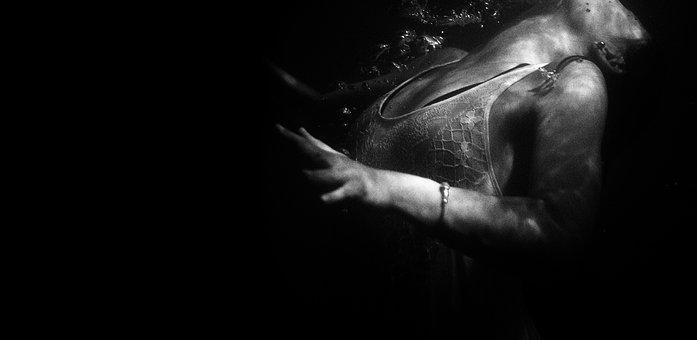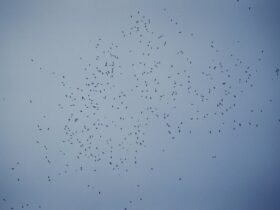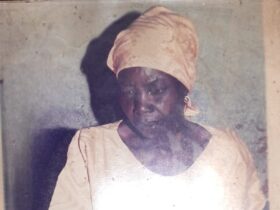
Andrea Grieder is a poet and social anthropologist. She is the founder and director of Transpoesis, an organization based in Rwanda with the aim to empower through Poetry. Originally from Switzerland, she has a Ph.D. from the University of Zurich and Ecole des Hautes Etudes en Sciences Sociales (EHESS), Paris. She is a lecturer at the University of Technology and Arts of Byumba (UTAB), Rwanda.
“My book is the best form I can give to a story, a story that already exists somewhere in a better way,” says Yewande Omotoso. Writing, to the Johannesburg-based author, is as such a humbling gesture to reality. At the Literaturhaus in Zurich, which has dedicated three days to literature from South Africa (www.literaturhaus.ch ), she read from The Woman Next Door. In this book, her second novel, she speaks about two women, both above 80, Marion Agostino and Hortensia James. One is white; the other, black. The story is located in the fictive Cape Town community Katterijn in real post-Apartheid South Africa. Yewande reveals that two characters find each other in the story to put each other in their place.

With a background in Architecture, the author explores spaces and the civility and nastiness beneath them. Within this, the two women fight out their animosities within the political space of land claims. Growing up in Nigeria, Yewande raises the historical weight of racisms embedded into the life of individual. She allows the characters to fail within the complexity of their own being.
When Hortensia is asked to allow a ceremony in honour of the souls of dead family members take place in her garden, she refuses, and hence fails to see how much she is claiming her property rights as much as her white neighbours.
“The two women are very good at looking at others, but how do I get these women look at themselves?” Yewande challenges her protagonists. What she aims at with her main characters is a question asked to the whole society through the means of literature. Hortensia fails regarding the rituals, unable to see that she negates her own connection to ancestry. Still, the story creates other potential moments of reconciliation. But, “Is it ever too late to repair?” the author asks.
During the public talk, she recalled from her own experiences the encounter with a white woman in South Africa who was able to admit that she and her family have been terrible cowards.
For Yewande, the memory gave raise to another important question: “What if we have a society where the majority of the people is not able to assume that they have been cowards?” She wants society to engage with her book in a process of finding answers.
In Zurich, the moderator of the panel discussion mentions the story of a young reader who was wondering if The Woman Next Door would be a good gift for his own grandma living in South Africa as “. . .she reminds (me) of Marion.” Yewande likes to think in alternative directions, “Maybe she will read the book and think: What a weird character, or the reader will come back to me and tell me the story of eye-opening change.”
We are reminded that there are constant invitations to look at ourselves, but we need to be ready to grasp one of them as an opportunity of change and growing humanly.

At Literaturhaus, identity politics from South Africa is back on stage with poetry. Koleka Putuma performs with a deep dwelling into history and collective wounds.
With Water, she narrates the way black people relate to the ocean as a memory of slavery, of colonialism creating a completely different habitues to the ocean than the one of white Baywatch nourished imagination.
Every time our skin goes underClick here
The reeds remember that they were once chains
And the water, restless, wishes it could spew all of the slaves and ships onto shore
Whole as they had boarded, sailed and sunk
Their tears are what have turned the ocean salty
This is why our irises burn every time we go under
(...)
They mock us
For not being able to throw ourselves into something that was instrumental in trying to execute our extinction
For you, the ocean is for surf boards, boats and tans
And all the cool stuff you do under there in your suits and goggles
For Putuma, a moment of reconciliation grows from the acceptance to sit together at a table and face a history of colonialism and slavery, a history that you – white people –have written into the ocean.
Once this is possible, we can swim together in the ocean,
Just for fun
With 1994: A Love Poem, Putuma challenges the western world’s perception on South Africa. She raises her voice:
I want someone who is going to look at me and love me the way white people
look at and love Mandela.
At the end of the poem, she asks the audience: “Do you love Mandela?”
Enough yes’ and affirmative screams from the audience to understand that the audience didn’t get her point. For her, probably another confirmation of the ignorance and blindness of people, white people.
The three days of literature and poetry from South Africa in Switzerland created a transcending we, a we that is questioned to think of how a humiliated and wounded we can find a way of overcoming the past, to feel ways of reparation without enclosing the other in a collective you. In The Woman Next Door, brushing the hair of her neighbour appears as a brief and subtle gesture of reconciliation over individuals’ responsibility and hurting behaviour within a heavy loaded history. While with Putuma, we may think, that time to spend a Sunday afternoon together at the beach seems not yet ready.
- The Mother of the Ocean – #Andrea - May 25, 2023
- Poetic Insights – #Andrea - October 5, 2022
- Lightful: A Poetry Performance– #Andrea - May 13, 2022













Leave a Reply